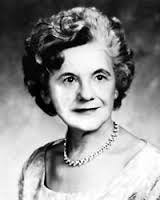Thank you for 250 subscribers and growing! To celebrate, I am exploring the novel from which I chose the name Mirrored Longings.
Irene Hunt is best remembered today for her masterful children’s novel, Across Five Aprils, a bildungsroman (coming-of-age novel) loosely based on her grandfather’s childhood during the Civil War. Across Five Aprils was a 1965 Newbery Honor book, and well-deserved. Hunt explored the breadth of national conflict through the eyes of a boy and his brothers who were old enough to fight. Two years later, Hunt’s novel Up a Road Slowly1 received the Newbery Medal.
Up a Road Slowly (scintillating title, no?) is also a bildungsroman, but an unhurried, gentler story. It begins with seven-year-old Julie moving to her Aunt Cordelia’s farmhouse in the wake of her mother’s death, and ends with Julie graduating high school. We see Julie grow from a precocious, grieving child to a confused teen to a girl on the cusp of womanhood. In each chapter, Julie loses some aspect of childhood—an ideal, a misplaced trust, a childish way of seeing the world—but more importantly, each chapter shows Julie gaining something better on her journey to adulthood.
Make Room, Jo March & Betsy Ray
To the pantheon of adolescent girl characters with literary aspirations, I humbly submit Julie Trelling. She does not have a lofty internal ambition to be great or perish. Instead, she scribbles stories, has her writing encouraged by her teachers, and finally settles down to learn the craft of writing.
Julie’s Uncle Haskell is the opposite of his austere sister Cordelia. Cordelia keeps the farm, nursed her aging family and now raises her young niece, and teaches in the one-room schoolhouse. Haskell is a profligate, an avoider of responsibility, so wrapped up in his lies to the world that we wonder if he really believes them himself. Irene Hunt, in her authorial mercy, gives Haskell a few avenues of selflessness in Up a Road Slowly, and one he takes is to critique Julie’s writing. Though part of Haskell’s facade is his supposed work on a great American novel, he is not really a writer, because he does not write. Yet, he knows good writing when he sees it, and he offers Julie his advice. She wrote a sorrowful tale about an elderly German musician, and Haskell tells her,
No, Julie, it will be a long time before you speak and think and feel like an anguished old German musician of eighty! And, after all, what do you know about the problems of musical composition, or the life of an impoverished German laborer such as the landlord in his nineteenth century environment? And how much do you know about sadism and brutality? (170)
Readers of Anne of the Island2 know Mr. Harrison’s admonition to write what you know.3 Haskell’s encouragement to Julie is to let her life inform her writing: “If you haven’t lived long enough to have felt anything deeply, then you are in the same position as I—as many would-be writers are.”4 So Julie, young teenager that she is, writes about her childhood, about the day she was moved to live with Aunt Cordelia (events that readers recognize from the first chapter). Haskell responds, “I never knew….I didn’t know that children felt so deeply.”5
Up a Road Slowly is especially poignant in its portrayal of Julie as a writer. First she scribbles and then she reads and then she learns to write. Through Julie, Hunt models for her young readers what it is like to receive hard, perhaps unpleasant, criticism of one’s writing. Julie models becoming a better writer in the process, showing that humility and perseverance go farther than elusive genius and praise-chasing in the work of writing.
There’s Something Austenian about Julie
Aunt Cordelia loves Jane Austen, and as I read Up a Road Slowly for the fifth time, I noticed how Julie reflects the journeys of several of Austen’s characters. She has the passion (and eye for a rake) that Marianne Dashwood does, but also the inner steel (tempered by tenderness) of Fanny Price.
In the final chapter, in which Julie graduates high school and decides about attending college, we learn her opinion on Austen: “I had once been intensely bored by Jane Austen myself, but I supposed that all people who had lived seventeen years had progressed in their powers of discrimination.”6
When she is in high school, Julie finds herself catching the eye of a young rake, mistrusted by her family but well-beloved by her. It is the Wuthering Heights era of many a youthful heroine. Even Austen’s characters often flirt with the idea of the wrong marriage—Elizabeth Bennet with Colonel Wickham, Marianne Dashwood with Willoughby, and Fanny Price with Henry Crawford. As with Julie, none of these marriages come to pass, but the author asks her readers to consider what might happen if it did. For Austen and Hunt, there is something more than passion at stake in a love match.
Julie might feel passion with her rake, but once she moves on (with a glorious passage about the morning she woke up to a new and beautiful world after her hurt passed), she finds that “love makes one a better person, a kinder and a gentler one.”7 Julie has struggled with jealousy upon recognizing that the adults who are the center of her world do not place her at the center of theirs. Instead, she learns that love is reciprocal, both giving and receiving, and that love shapes her into “a better person.” A relationship that drives her away from wise friends and family is not true love, but a relationship welcomed by her and her family is one worth keeping.
Growing Up
In every chapter, Julie loses something (a part of her childhood) and gains something (an insight for adulthood). Julie grows up in a one-room schoolhouse led by Aunt Cordelia, where she encounters childhood prejudices and develops her own preferences. We follow her painful journey of relating to her classmate Aggie, who is poor and disabled, in the tide of schoolgirl politics. Julie loses much of her innocence along the way, learning how cruel the world can be to the disadvantaged, but Hunt once more shows an authorial mercy by providing adults to care when children don’t.
Jonathan Eltwing, a retired college professor who becomes a friend of Julie’s, reflect hers with on aging at Julie’s ripe old age of seventeen:
“Firelight does for an old room like this what wisdom does for an old face, Julie. It softens the grimmer aspects and compensates for the drained color.”
“Doesn’t goodness do the same thing, Jonathan?” I asked….
“That’s the kind of wisdom I am talking about. Learning isn’t always enough, you know. I’ve seen some very unlovely old faces that belonged with very well-stocked brains. These were the ones that lacked the other elements of wisdom—kindness, compassion, a sense of humor.”8
In Up a Road Slowly, we see Julie grow in wisdom and stature, but also in goodness, in “kindness, compassion, [and] a sense of humor.” We leave her at seventeen, newly graduated, full of hopes for the future, but also with the sense that she will be all right, having started on a good path (if slowly), and increasing in the virtues that matter more than degrees and honors. As I close the novel, even for the fifth time, I am struck that the voice of the narrator is Julie in old age, reflecting on her youth and the events that shaped her womanhood. While she leaves us wanting more, her story is complete.
Mirrored Longings
When I was thinking of a title for my newsletter, I wanted something short and snappy, but also one that reflected what I wanted to write about: those moments where a rift between heaven and earth gives us a glimpse of the eternal. It’s C. S. Lewis’s idea of Joy, Amy Baik Lee’s Homeward Ache,
’s longing for beauty, L. M. Montgomery’s “funny ache” that Anne experiences. So I pulled out a stack of my favorite books and began hunting for a title.
In Up a Road Slowly I found the passage. Julie receives a volume of Edna St Vincent Millay’s poetry, encountering “God’s World:”
Thy winds, thy wide grey skies! Thy mists that roll and rise! Thy woods, this autumn day, that ache and sag And all but cry with colour! That gaunt crag To crush! To lift the lean of that black bluff! World, World, I cannot get thee close enough!
I, too, continually find resonance in Millay’s poetry, but what arrested me was Hunt’s description of Julie’s experience of reading:
I found lines that mirrored an ache and longing I had so often felt when the beauty around my woods cathedral was too intense, when the need to grasp and keep loveliness left me with a sense of desolate frustration.
Creative types often feel a sense of loneliness, and I’m no stranger to that. But I have yet to find “an ache and longing” that has gone unmirrored in literature, art, music, film, history, Scripture, friendship. The longings in our life that are temporarily sated, but grow deeper with each passing year, are the image of God in us craving eternal life. We are not made for death. We know there is something more. This is the longing.
It is my hope that Mirrored Longings can be a little mirror for you. That is why I write here: to make the world a little less lonely, to share beauty that makes my heart soar above the travails of the world, but also gives me courage to face the dragons, for they will be defeated.
O Lord, all my longing is known to you;
my sighing is not hidden from you.
Psalm 38:9 NRSVUE
I’ll be quoting from my lovely Follett edition from 1967.
Anne of Green Gables by L. M. Montgomery must have been an influence on Up a Road Slowly. There’s a character named Cordelia; a reference to “where brook and river meet;” a friend of Julie’s with the last name of Berry (so close to Barry) and the first name of Carlotta (so close to the Charlottas of Anne of Avonlea); prayer in the woods; and more reminders of Anne. In tone, however, Up a Road Slowly is closer to Montgomery’s Emily Starr books.
“…you shouldn’t have laid the scene among rich city people. What do you know of them? Why didn’t you lay it right here in Avonlea—changing the name, of course, or else Mrs. Rachel Lynde would probably think she was the heroine.” Anne of the Island by L. M. Montgomery, Chapter 12, “Averill’s Atonement.”
Up a Road Slowly, 171.
Up a Road Slowly, 172. Haskell has his finger on the difference between great writers for children and poor writers for children. The great ones, like Irene Hunt, remember that children feel deeply.
Up a Road Slowly, 183.
Up a Road Slowly, 161.
Up a Road Slowly, 187.







You should write a book. Do you write poetry? You have the soul of a poet. I just love reading your observations - you see so much more than most - or maybe the right word would be feel. Also, thanks for sharing how you came up with the name - I had been wondering!
Melody, your writing is true and moving and alive. I am misty-eyed. I believe that this longing we feel inside can only be filled with the Love of God as we move through this life
as ‘strangers in a strange land’. Thank you for your beautiful writing and the gift that it was to me today. xo